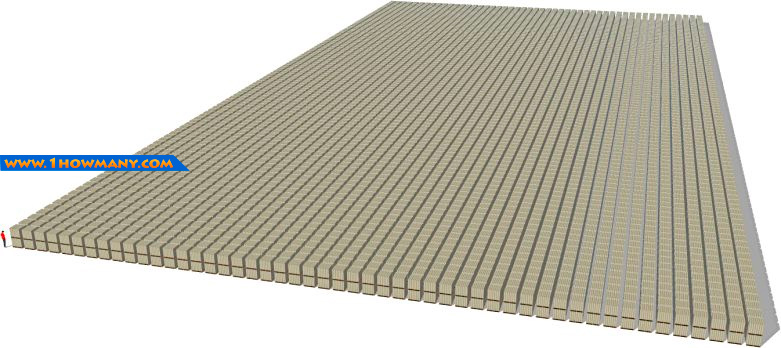www.1howmany.com
Example How Many Zeros in a Trillion
Units of Measure / How Many Zeros in a Trillion
How Many Zeros in a Trillion
So, you have to remember the following:
- According to the short scale1, there are twelve zeroes in one trillion (1,000,000,000,000)
- According to the long scale2, there are eighteen zeroes in one trillion (1,000,000,000,000,000,000)
Differences between these two scales start from a billion, because lower numbers are all the same in them (a hundred, a thousand, a million). In the short scale a billion is equal to 109, but in the long one it is 1012. Of course, it influences higher numbers.
Short Scale
Long Scale
A million
1 000 000
1 000 000
A billion
1 000 000 000
1 000 000 000 000
A trillion
1 000 000 000 000
1 000 000 000 000 000 000
In many countries the term “milliard” is in common use for denoting the nine zero number.
Some Interesting Facts about a Trillion
It is not easy to imagine what a trillion means. Read the following examples (we use the short scale trillion), and you will fancy it more clearly:
- You would need almost two trillion pennies, if you decided to fill the famous Empire State Building with them.
- If you had one trillion dollars and spent one million an hour, it would take 411 years to spend all the money.
- One trillion seconds ago there was no Western civilization in the world.

This is what one trillion dollars in 0 bills looks like. Do you see the man, standing in the left near corner of the picture?
- The short scale (from French échelle courte) is a system of large number naming. According to the short scale, starting from million, every number is one thousand times the previous number. E.g. billion is a thousand millions.
- The long scale (from French échelle longue) is a system of large number naming. According to the long scale, starting from million, every number is one million times the previous number. E.g. billion is a million millions.
You may be interested in:
Comments
